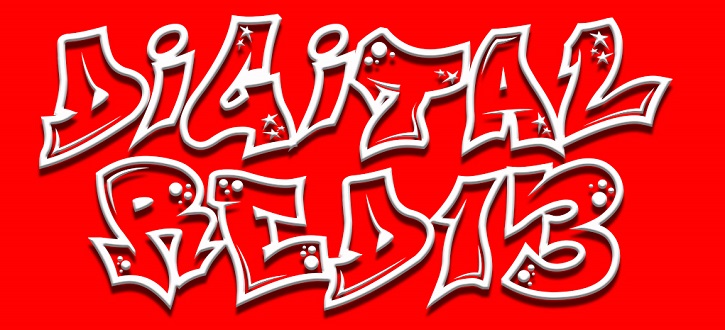It's the year 2055, and the music industry has changed. No longer are the days where recording industry executives reap more profits than the artists themselves. Musicians have found a new way to monetize their melodious work through technology and basic marketing. There used to be a day when recording artists were psyched to sign a label, but now times have changed, and the environment is stronger than ever.
Let's face it, major record labels never had their artists’ interests at heart and in the early days it was horrible. Artists always were pushed to perform commercial music and have suffered through selling their material on other people's terms. Years ago the cryptocurrency changed this dynamic and distributed ledger technology had disrupted the monopolies of the past. I thought about this progression today as I sit here and inhale my vaporized smoke.
I've been a musician my whole life following the footsteps of the generational family members before me. My father was an untamed lyrical genius spreading his low toned voice with grace throughout his career. You might have heard of him as he was one of the first hip-hop stars to embrace digital currency and shake up the music game. His name was Red, and he sold 2 Million albums in one week because he hustled and kept his individuality.
Before my father's time, his dad was also a musical talent spreading his jazz fusion over turntables and also made a name for himself. However, my Grandfather was signed to a music label called “Dead Jams” and they pillaged his material for every scrap of wealth they could steal. The music industry was a vulture over his assets, and they could do this because he allowed it through contract. At the time it seemed it was the only way to survive in the business by clinging to a label.
My father changed all that through a new paradigm early into his music career. At the time when Itunes, Spotify, Pandora, and others ruled the music roost for streaming songs and digital MP3s. Technology was also changing the landscape of music and the industry as a whole through peer-to-peer networks. These new technological progressions enabled Red to see something extraordinary within the current framework of sharing economies, so he decided to delve into it.
Not only was my father a great lyricist he also had great business acumen. Already being well known in our neighborhood in Queens, Red created a mountain of free music and shared it across the web instead of selling physical copies like CDs. Red basically uploaded ten albums he composed and shared them as torrent files. That's right, he gave the music away for free, and this ignited his name throughout the streets and online hip-hop circles. He also decided to work with many DJs, lyricists and bands on their projects working weeks on end for free. The summer he came up with this idea was the year you couldn't turn the radio on without hearing my Dad’s beats and voice.

It was roughly around the holiday season in 2013 when my father had heard about Bitcoin. I remember it vividly: he came into the living room and explained to the whole family exclaiming “this is it!”
My father had created his own record label, but he still relied on the royalties of iTunes downloads and payments from online stream providers. Streaming music paid less than pennies a stream and often it would take months for him to receive checks for his material. iTunes was no different, and Apple took quite a bit of my father's money even though he worked for himself. Using Bitcoin changed all that, and he decided to shut all these services off. With capital from his label, he created his website that sold his album directly for cryptocurrency.
The idea was genius and immediately he gained attention for cutting off the mainstream commercial blood suckers. After all, it was music industry executives and labels who ruined the medium by pillaging artists. The first album he sold called, “Digital Red13” went double-platinum in the first week. You could purchase directly from his site and it was sold only for bitcoin. My father gained national attention in the U.S., and this continued globally with many other artists following this idea.

The whole industry got turned upside down by artists leaving both their record labels and the so-called music “providers” for themselves. Musicians were paid instantly for their craft as bitcoin payments were sent directly to their wallets. There were no giant size cuts for music streaming companies and download engines anymore as Red taught the entire ecosystem a new way.
Artists embraced the mindset that they could sell themselves and be paid through the virtual universe on their own terms. Instead of fighting piracy they used BitTorrent to market themselves and make their name. They utilized ideas like cryptocurrencies and opened new doors to selling content directly from the artist to the fan.
I remember this memory because today I have released my own album and sold the first copy just now with a smile upon my face. A person by the name of Dizan87 bought my record and we both received instant gratification through digital currency and music. Now there are completely decentralized marketplaces where recording artists, writers and filmmakers like myself can make money instantly. Through my Father's vision the music game changed and I am proud of the foundations he helped create.
